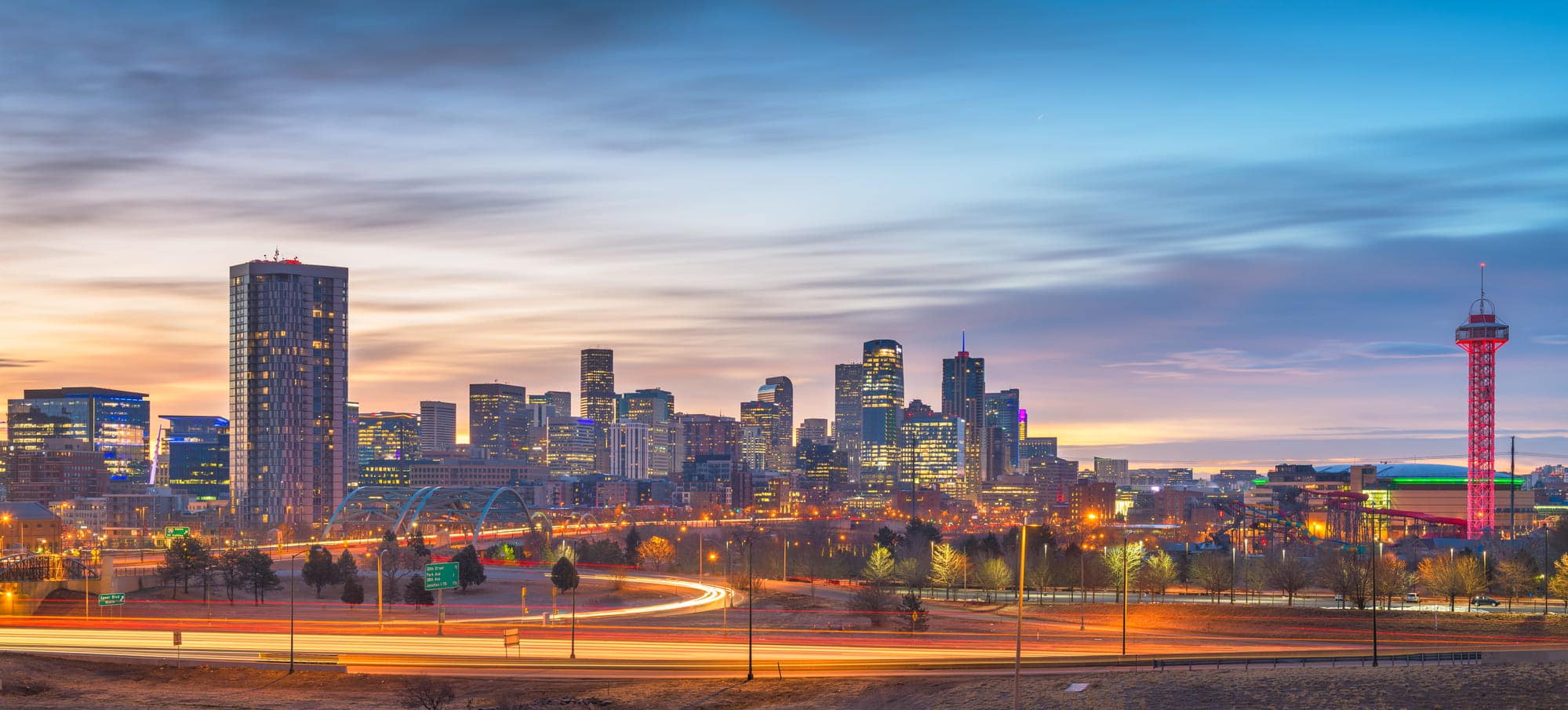Are you contemplating a relocation to the capital of Colorado? Denver, Colorado, has attracted new residents for years with its stunning natural beauty, booming job market, and diverse neighborhoods.
Boasting a bustling downtown area, diverse cultural attractions, and access to outdoor recreation opportunities, Denver is one of the fastest-growing cities in the United States and a top spot to buy Colorado real estate. However, along with these benefits come challenges like navigating the competitive housing market and adjusting to Denver’s cost of living.
When considering a move to the Mile High City, there are several factors you’ll want to be aware of. In this article, we will discuss what you need to know about moving to Denver so that you can make an informed decision on whether it’s the right fit for your lifestyle and needs.
What You Need To Know About Moving to Denver, CO
Moving to a new city can be both exciting and overwhelming. If you’re considering relocating to Denver, Colorado, it’s essential to know what makes this vibrant city unique. In this section, we’ll explore some key aspects that make Denver an attractive destination for families, young professionals, and retirees alike.
In this comprehensive guide on what you need to know about moving to Denver, we will also explore various aspects of life in this bustling metropolis –from public transit options and popular suburbs for families to local sports teams like the Colorado Rockies and Denver Broncos.
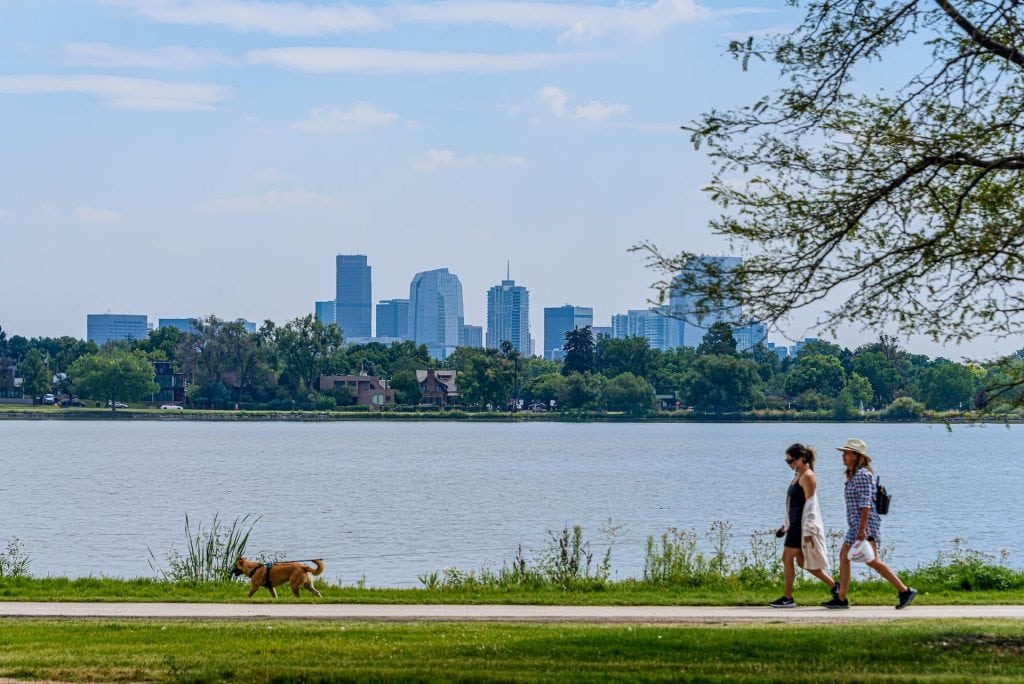
We’ll also address common questions people have when relocating here so that you’re well-prepared for your big move. Read on to learn about the city before choosing to make it your home.
Ranked One of the Best Cities for Families
Denver has been ranked as one of the best cities in the U.S. for families thanks to its excellent schools, low crime rates, and abundance of family-friendly activities. The city offers numerous parks and recreational facilities where children can play while parents enjoy peace of mind knowing their kids are safe.
Dynamic and Eclectic Neighborhoods
The neighborhoods in Denver offer something for everyone –from hip urban areas like RiNo Art District with its art galleries and trendy restaurants to charming historic districts such as Washington Park with tree-lined streets perfect for strolling or biking. No matter your lifestyle preferences or budget constraints, there is sure to be a neighborhood that suits your needs.
A Thriving Job Market
The job market in Denver is thriving due in part to employers like Lockheed Martin, Google, and Ball Corporation. The city’s diverse economy spans up-and-coming industries like technology, aerospace, healthcare, and finance. Denver’s wide-ranging economic landscape has kept joblessness at bay and lured skilled professionals from around the United States.
The Cost of Living Is Higher Than the National Average
Despite its many advantages, the cost of living in Denver is higher than the national average, particularly housing costs. According to PayScale, housing costs are particularly steep compared to other cities across America. However, wages tend to be higher in Denver, which can help offset these expenses for some households.
Plenty of Stuff To Do
In addition to its beautiful natural surroundings like Red Rocks Park & Amphitheatre, there are plenty of activities and attractions within city limits too – including world-class museums like Denver Museum of Nature & Science, professional sports teams such as the Broncos or Nuggets, and thriving arts scene featuring galleries, theaters, and live music venues.
No matter what your hobbies are, there’s something in the city for you to enjoy and get involved in.
Denver Is a Center of Learning
If you’re moving to Denver with your family, you’ll be happy to know that the city is home to some of the best schools in Colorado. The Denver Public Schools (DPS) system serves over 90,000 students across 200 schools and has been recognized for its innovative programs and high graduation rates. Although the school system is large, students benefit from individualized instruction and small classroom sizes with an appropriate student-to-teacher ratio.
Higher Education in Denver
Beyond K-12 education, Denver also boasts several renowned colleges and universities. The University of Colorado Denver, located in downtown Denver, offers over 100-degree programs ranging from business to engineering. Additionally, the prestigious private institution University of Denver is known for its strong academic reputation and beautiful campus.
The state-funded Metropolitan State University of Denver (MSU) provides affordable higher education options for those seeking career-focused degrees such as nursing or teaching. For those interested in pursuing art or design careers, there’s no better place than the internationally-renowned Rocky Mountain College of Art + Design.
The City Is Also Younger Than Many Other Places
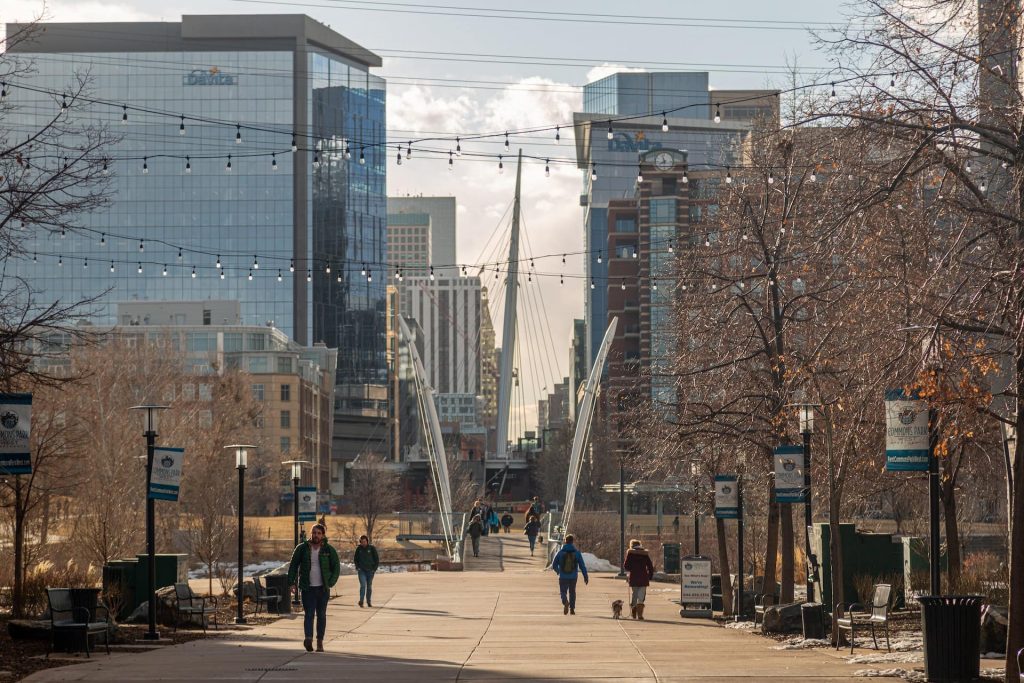
Denver is a city that attracts people of all ages, but it’s especially popular among young professionals. The median age in Denver is 36 years old, which makes it one of the youngest major cities in the country. This youthful energy is felt throughout the city and contributes to its vibrant culture.
Compared to other major cities like New York or Los Angeles, where the median age hovers around 38-39 years old, Denver feels significantly younger. Additionally, many retirees flock to places like Florida and Arizona for their golden years, while Colorado has become increasingly attractive for millennials who are looking for an active lifestyle with plenty of outdoor activities available year-round.
This youthfulness isn’t just a passing trend either. According to recent estimates from the U.S. Census Bureau, Colorado’s population grew by over 14% between 2010 and 2020. Much of this growth was concentrated in metro areas like Denver, where job opportunities abound thanks to rising industries such as tech and healthcare.
One of the benefits of moving to Denver is that it offers a great place to live without breaking the bank. While housing costs have been on the rise in recent years, they’re still significantly lower than in other big cities like New York or San Francisco. For example, you can find a one-bedroom apartment in downtown Denver for around $1,500 per month compared to over $3,000 in San Francisco.
It’s Always Sunny
If you’re moving to Denver, one thing you’ll notice is that the city boasts 300 days of sunshine every year. This makes it a great place for outdoor enthusiasts and those who love to soak up some Vitamin D. The Mile High City experiences four distinct seasons, with mild winters and hot summers.
Temperatures in Denver
The average temperature in Denver ranges from about 45°F (7°C) in January to around 74°F (23°C) in July. However, temperatures can fluctuate greatly throughout the day due to the high altitude and low humidity levels. It’s not uncommon for there to be a significant difference between daytime highs and nighttime lows.
People who struggle with allergies or sinus issues may have more symptoms in this climate than they would elsewhere. These symptoms can be managed; however, it’s important to be aware of any potential concerns before committing to move to the city.
Seasonal Variation
In springtime, expect cooler temperatures with occasional snowfall until May when things start warming up again. Summers are hot with occasional thunderstorms during late afternoons or evenings while fall brings beautiful foliage colors as well as crisp mornings followed by warm afternoons.
Snowstorms are common in the winter, especially from November until March. However, due to the elevation, it’s not unusual for Denver to experience storms or even blizzards in the spring. If you’re moving from a climate where snow is uncommon, it’s worth doing some research on winter safety and essentials before heading into the city.
Residents Are Spoilt for Choice of Eating and Drinking Spots
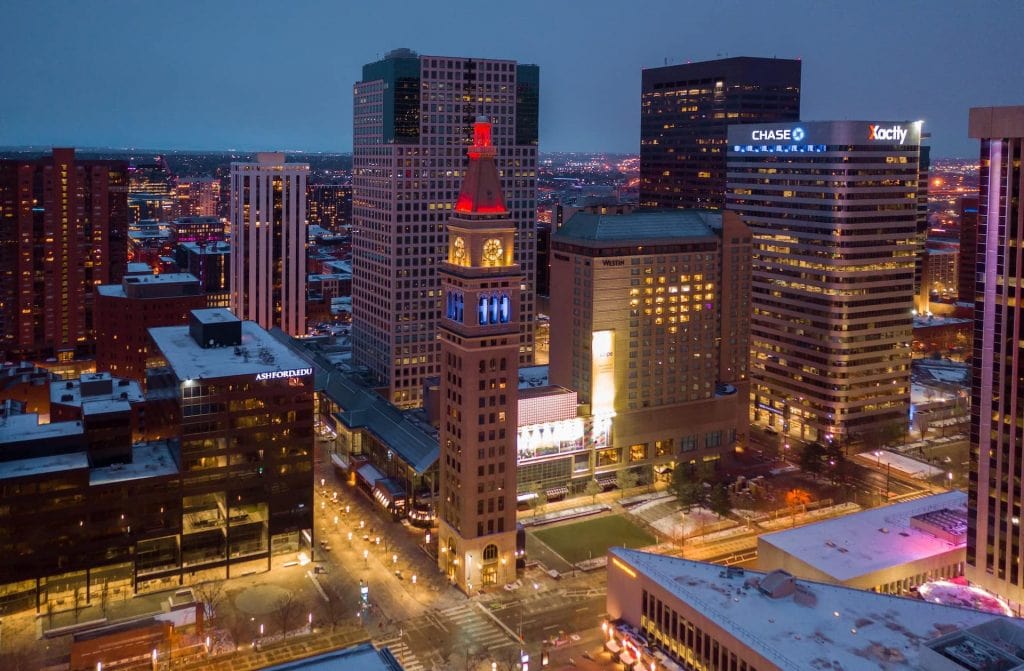
If you’re a foodie, Denver is the perfect place to be. The city boasts an incredible food scene that offers something for everyone. From farm-to-table restaurants to trendy bars, there’s no shortage of great places to eat and drink in Denver.
Downtown Denver has some of the best dining options in the city. One must-visit spot is Mercantile Dining & Provision, which serves up fresh seasonal dishes made from locally sourced ingredients. For those looking for something more casual, Euclid Hall Bar & Kitchen offers delicious pub fare with a twist.
Craft Beer in Denver
Beer lovers will feel right at home in Denver, as it’s known as one of the top cities for craft beer in America. With over 150 breweries within an hour’s drive from downtown, there are plenty of options to choose from. Some popular spots include Great Divide Brewing Company and New Belgium Brewing Company.
Nightlife Spots in Denver
If you’re looking for a night out on the town, head down to LoDo where you’ll find some of the best bars and nightlife spots around. Williams & Graham is a speakeasy-style bar that serves up creative cocktails while Union Lodge No 1 offers classic drinks with a modern twist.
No matter what your taste buds desire or what kind of atmosphere you’re after – whether it’s rooftop patios, loud clubs, or cozy cafes – Denver has got you covered when it comes to eating and drinking spots!
Lots of Green Space
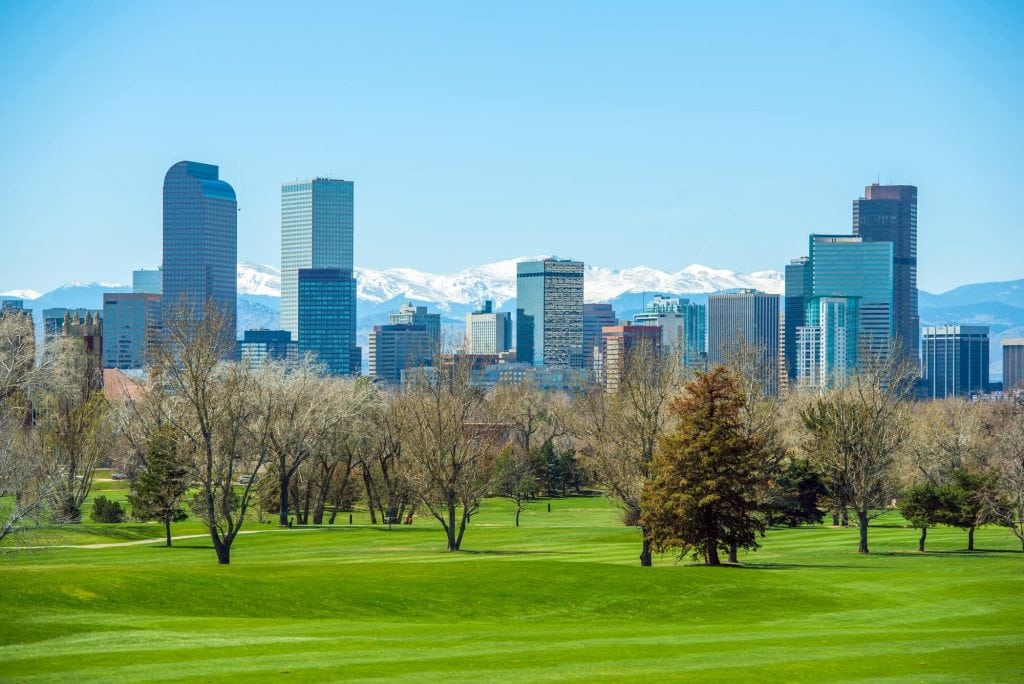
Denver is known for its beautiful parks and green spaces, making it a great place to live if you love spending time outdoors. With over 200 parks in the city, there’s no shortage of places to explore. There are several notable parks, including:
- City Park: This park covers 330 acres and features two lakes, a golf course, and the Denver Zoo.
- Denver Botanic Gardens: A stunning oasis in the heart of the city featuring over 50 gardens spread across 24 acres.
- Denver Zoo: Home to more than 4,000 animals representing over 600 species from around the world.
- Cherry Creek State Park: There is a spacious park that surrounds a reservoir and offers camping, water sports, and other outdoor leisure activities.
- Chatfield State Park: You can enjoy biking, hiking, camping, and boating while taking in the beautiful views of the foothills and Platte River Valley.
In addition to these notable parks, Denver also has plenty of smaller neighborhood parks, which offer playgrounds, picnic areas, and sports fields. And if you’re looking for outdoor recreation beyond walking or biking through a local park, there are equestrian centers for horseback riding.
The Rocky Mountain National Park is also just an hour away from downtown Denver by car, whether you want to ski down powdery slopes or hike scenic trails and bike paths with breathtaking views. No matter what your favorite type of physical activity is, you’ll be able to enjoy all of it and more in Denver.
Green Lifestyles Are Valued
If you’re moving to Denver, one thing you’ll quickly notice is the city’s strong commitment to sustainability and healthy living. From its extensive network of bike lanes and trails to its robust recycling program, Denverites take pride in protecting their environment.
Denver has been named one of the top cities for biking in America by Forbes Magazine. With over 85 miles of dedicated bike lanes and a thriving bike-sharing program called B-Cycle, it’s no wonder why so many people choose two wheels as their primary mode of transportation. The city also hosts an annual Bike to Work Day event that encourages commuters to ditch their cars for a more eco-friendly option.
The City of Denver is committed to reducing waste and promoting sustainable practices throughout the community. In addition to curbside recycling pickup, residents can participate in composting programs or drop off hazardous materials at designated facilities. There are also numerous farmers’ markets where locals can purchase fresh produce from nearby farms while supporting local agriculture.
In addition to being environmentally conscious, Denverites prioritize health and wellness. The city boasts over 200 parks with plenty of opportunities for outdoor recreation such as hiking, skiing, or snowboarding in winter months; kayaking or paddle-boarding during summer months; rock climbing year-round thanks largely due to its proximity to Rocky Mountains National Park which offers endless possibilities for adventure seekers.
Traffic Can Be Rough
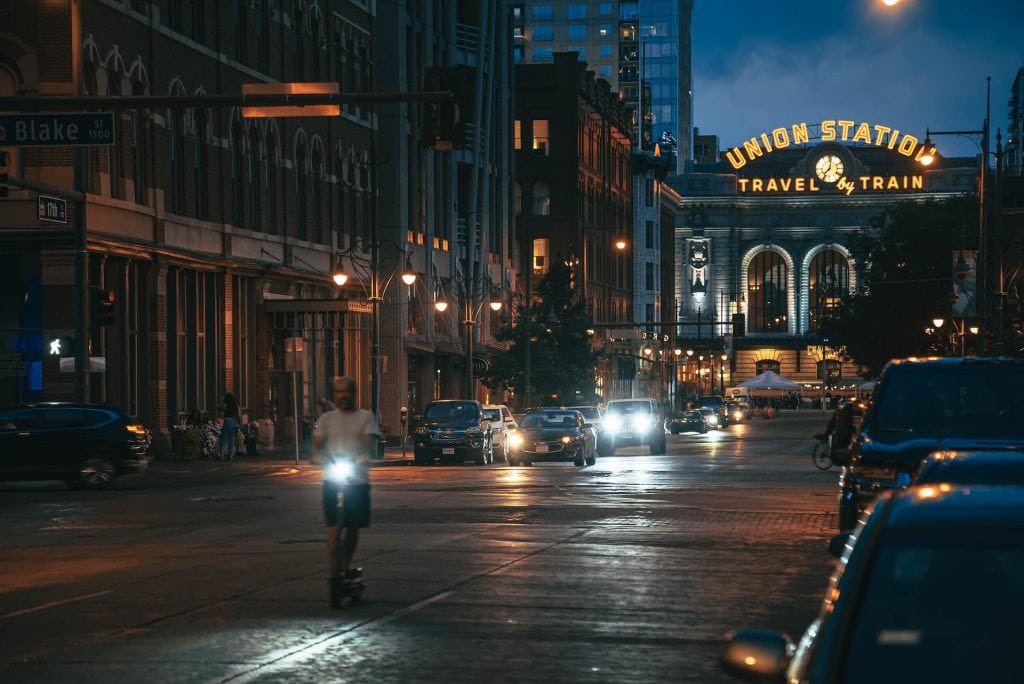
Denver is a bustling city with plenty to offer, but like any big city, traffic can be a challenge. The Denver metro area has seen significant growth in recent years, and the roads are struggling to keep up with the increased demand.
Like any populated area, you can expect downtown Denver to have heavy traffic in the mornings and evenings, as people arrive and leave work. Weekend traffic tends to be lighter. This mass travel can create gridlock on the roads, so plan accordingly. Similar traffic patterns will be observed during special events like concerts, but this isn’t specific to Denver. As long as you expect traffic, you’ll be fine.
The I-70 Corridor
One of the most notorious areas for traffic congestion is along the I-70 corridor that runs through Denver. This highway connects downtown Denver to popular mountain destinations such as Vail and Breckenridge. During peak travel times, it’s not uncommon for this stretch of road to become gridlocked with cars heading out of town for weekend getaways or ski trips.
Denver Is Known as the Mile High City for a Reason
If you’re considering moving to Denver, one of the first things you’ll notice is that it’s known as the Mile High City. That’s because Denver sits exactly 5,280 feet above sea level. While this altitude may not seem like a big deal at first glance, it can have noticeable effects on visitors, pets, and residents.
The Effects of Altitude in Denver
One thing many people notice when they arrive in Denver is how thin the air feels. At higher altitudes, there are fewer oxygen molecules per breath than at lower altitudes. This can make physical activities more challenging until your body acclimates to the change.
In addition to feeling short of breath during exercise or other physical activity, some people also experience headaches or dizziness due to changes in blood flow caused by the high altitude. There are also other lifestyle impacts due to the elevation, such as having to adjust times when cooking or baking to accommodate for being so far above sea level. Don’t worry- there are plenty of tips and recommendations on how to adjust your recipes accordingly.
All that said, most people who move to Denver adjust just fine after a few days or weeks. Once you get used to living at a mile-high elevation, you’ll be able to enjoy all that this great city has to offer without any issues!
You Don’t Need a Car
If you’re moving to Denver, you might be wondering if you need a car. The answer is no – in fact, many people who live in Denver don’t own cars at all.
Downtown Denver is very walkable and bike-friendly, so if you enjoy a bike ride to work or for pleasure, this is the city for you. You can easily get around on foot or by bike thanks to the city’s extensive network of sidewalks, trails, and bike lanes.
The public transit system in Denver is also excellent compared to many other major cities in the United States. RTD (Regional Transportation District) operates buses and light rail trains throughout the metro area with frequent service and affordable fares. Opening a membership with the RTD is an easy way to ensure you’re getting the best fares, not to mention the peace of mind of holding a preloaded card you can scan when boarding.
In addition to being more environmentally friendly, not owning a car can save you money on housing costs since apartments without parking spots tend to be cheaper than those with them. It’s worth noting that finding parking downtown can be challenging, as well as expensive, so it may make your life easier if you opt out of having one.
Overall, Denver is a great place to live without a car. Whether you’re walking, biking, or taking public transit, you’ll be able to get around the city with ease. And don’t worry- you will also have access to popular rideshare programs like Lyft and Uber, which operate with full permissions in the city.
If you’re flying to or from Denver, the Denver International Airport is an impressive transportation hub that serves as the gateway to the Rocky Mountains. As the fifth-busiest airport in the United States, DIA offers a wide array of amenities for travelers passing through, including restaurants, bars, and boutique shops that reflect Colorado’s unique culture.
Frequently Asked Questions: Moving to Denver
Below are some common questions people have about moving to Denver, along with helpful answers to guide you in your decision-making process.
What timezone is Denver in?
Denver is located in the Mountain Time Zone (MT). This means it’s one hour ahead of Pacific Time and two hours behind Eastern Time.
How safe is Denver?
The safety of a city depends on various factors such as crime rates, neighborhood statistics, and personal experiences. While certain areas may be safer than others, overall, Denver has a moderate crime rate compared to other major cities. For more information, check out a detailed analysis of the city’s safety by neighborhood in the area.
Is Denver pet-friendly?
Absolutely. The Mile High City offers numerous parks and trails for pets to enjoy with their owners. In addition, many restaurants and coffee shops welcome furry friends in outdoor seating areas. Denver’s healthy, walkable lifestyle lends itself to pet owners, and you’ll find that many areas not only welcome pets but recommend you bring them with you!
What’s the tax rate in Denver?
In Colorado, the flat income tax rate stands at 4.63%. However, sales taxes vary depending on location within the state; combined sales tax rates range between approximately seven percent (7%) and eleven percent (11%). You can find more information on Colorado tax rates at the Colorado Department of Revenue website.
Conclusion
Once you’ve gone through this guide, you should have a better idea of what it’s like to relocate to Denver –the climate, cost of living situation, employment opportunities, and noteworthy areas. You now know about the city’s climate, cost of living, job market, and popular, desirable neighborhoods.
If you’re ready to take the next step in your journey toward moving to Denver, visit our website for more resources and guidance, and to search for Denver homes for sale. Our team of local real estate agents can also help make your move as smooth as possible.
